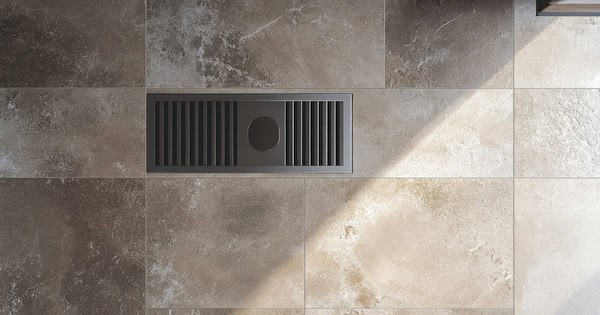Preventing Legionnaires’ Disease: Infection Protection For Guests
It was at a hotel that nearly 50 years ago the world learned of Legionnaires’ Disease—an often-deadly form of pneumonia. There in July 1976, during a three-day American Legion convention at the Bellevue-Stratford Hotel in Philadelphia, 182 of the 2,000 attendees—including hotel staff—developed symptoms, which included fever, cough, and shortness of breath. News of the outbreak stayed in the headlines and broadcasts for weeks.
Though future outbreaks have a mortality rate of one out of 10, tragically, at the Bellevue-Stratford, 29 died. The mystery illness dominated national headlines as health officials scrambled for answers. The CDC eventually identified the culprit: Legionella pneumophila, a bacterium that had proliferated in the hotel’s cooling tower.
Unlike SARS or influenza, Legionnaires’ Disease doesn’t spread from person to person. Instead, it’s contracted by inhaling aerosolized water droplets contaminated with Legionella bacteria. These pathogens occur naturally in freshwater environments like lakes and streams, where they are dispersed and pose little risk. Legionella can become dangerous in manmade water systems—particularly those with warm, stagnant water.

Who’s At Risk?
According to Legionella.com, between 56,000 and 113,000 people in the U.S. may be affected by the bacteria each year. CDC data shows the reported rate of Legionnaires’ Disease has grown ninefold since 2000, yet the illness remains underdiagnosed.
Outbreaks tend to affect multiple individuals and commonly occur in large buildings like hotels. Those most at risk include:
- Adults over age 50
- Current or former smokers
- People with weakened immune systems
- Individuals with chronic health conditions like diabetes or kidney disease
Why Hospitality Is Vulnerable
Hotels provide multiple breeding grounds for Legionella: cooling towers, fountains, hot tubs, plumbing in unoccupied guest rooms, and showers. Showers are found in every hospitality guest room along with swimming pools and fitness centers.
Shower piping and handheld hoses can harbor bacteria when water sits after use. Legionella thrives in biofilms—a slimy buildup inside plumbing systems, particularly behind walls and in flexible hoses.
Since 1976, Legionnaires’ Disease has continually created health problems worldwide. In 2024, two resorts in the U.S. Virgin Islands each reported guests infected with Legionnaires’ Disease, with two requiring hospitalization. In Las Vegas, a resort and casino reported 15 probable cases. In both outbreaks, showers were identified as a primary source of exposure.
Hospitality Properties Must Act To Mitigate Infection Risks
The Centers for Disease Control and Prevention (CDC) recommends that all facilities, including hotels, implement a Water Management Program (WMP) to reduce Legionella risk. ASHRAE Standard 188 outlines key steps, including risk assessment and control measures.
To stay ahead of tightening rules and avoid penalties or liability, hotel and resort owners should act now. Implementing water management plans aligned with ASHRAE 188 and CDC guidance not only prepares properties for compliance—it demonstrates a commitment to protecting guest health and business reputation.
Hotels like hospitals may have tried to mitigate risks by asking housekeeping staff to manually disconnect and drain shower hoses. But this process is labor-intensive, inconsistently followed, and rarely part of routine room cleaning.
What Should Hotels Do For Guest Safety In The Showers?
A reliable solution is the installation of automatically draining shower valve systems from the start, and recommend specifiers include them in renovation or update plans. These systems prevent stagnant water buildup in the behind-the-wall shower pipe and handheld hose with spray — precisely where Legionella tends to flourish. If an existing hotel or motel has the handheld hose with spray, this can be easily replaced in existing showers with the retrofit model of the instant water discharge hose with discharge valve.
By removing water that would otherwise be residing in pipes and hand-held hoses, these self-draining shower systems significantly reduce the potential for bacterial growth and support higher standards for both guest safety and regulatory compliance. For hotels, integrating such technology not only demonstrates a commitment to public health but also offers a modern, evidence-based enhancement aligned with best practices for minimizing waterborne pathogen risks.

How The Shower System Works
- Once the shower is turned off, the auto-draining valve automatically opens to release all remaining water.
- It effortlessly discharges water between residing in the shower pipe (between the valve and showerhead) within one minute after use.
- It’s compatible with your building’s system with options for pressure-balancing or thermostatic pressure-balancing mixing valves to fit the various plumbing designs.
- For dual spray showers, a diverter valve is also installed that allows the shower pipe and hand-held hose with spray to drain completely after shut-off.
- The hose with an auto-draining valve eliminates the need for manual draining or repositioning of the hose by housekeeping.
- The shower valve is built for durability in demanding hospitality environments.
For guests, the system operates invisibly and safely. For staff, it simplifies the room turnover process. And for hotel operators and owners, it removes one of Legionella’s favorite hiding spots, while maintaining your reputation and protecting the public.
Beyond Safety: Efficiency And Compliance
These systems do more than prevent illness. They support:
- Efficient water use, with 2.5 GPM, 1.75 GPM, or sustainable 1.5 GPM flow rates
- ADA compliance, with optional grab bars in a range of lengths
- Compliance with key standards, including ASME A112.18.1/CSA B125.1, ASSE 1014, ASSE 1016, and ADA ANSI/ICC A117.1
The Broader Impact
Installing automatic drain systems demonstrates a hotel’s commitment to public health, operational excellence, and guest well-being. By investing in modern, evidence-based solutions, hospitality managers can:
- Protect guests and staff
- Reduce legal and reputational risk
- Meet or exceed regulatory requirements
- Reinforce their brand’s focus on health and safety
At a time when wellness and hygiene are top of mind for travelers, proactive plumbing solutions send the right message. It’s an investment in peace of mind for facilities staff and guests—in hotels, motels, or intermittent use facilities like campgrounds, gyms, and pools.
By Greg Hunt
From the October 2025 Issue
Hunt is the Commercial Product Manager for Chicago Faucets’ Commercial Product Lines. In addition to Product Management, Greg’s role at Chicago Faucets includes strategic product direction and tactical execution to the sales, engineering, and manufacturing teams. His experience includes over 20 years in product management in a variety of industries.

